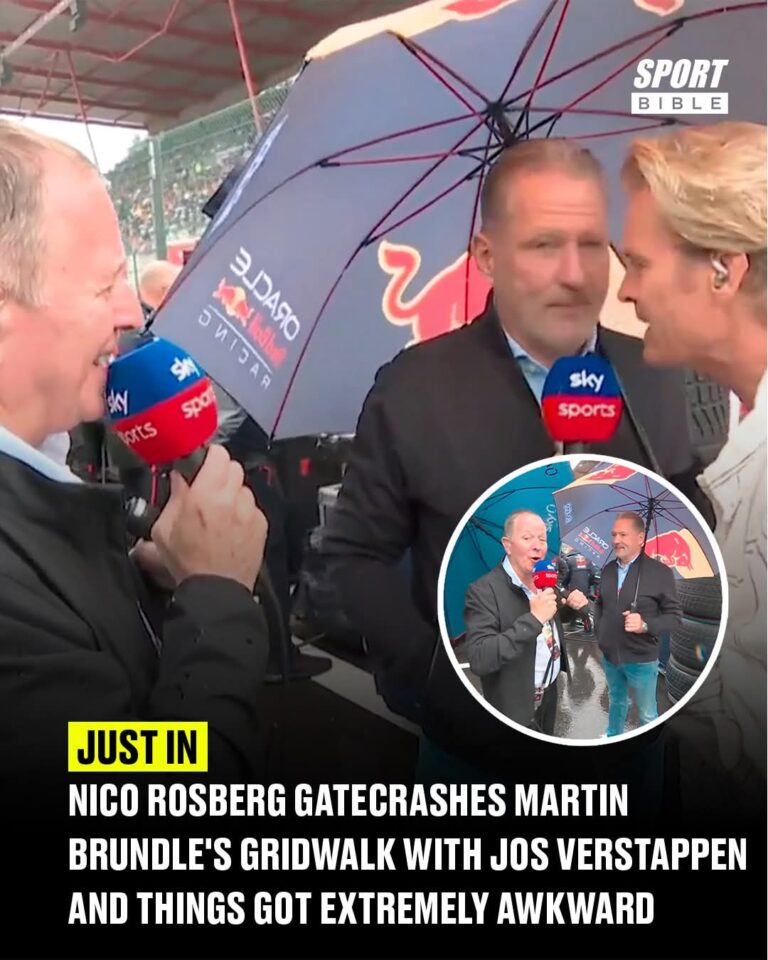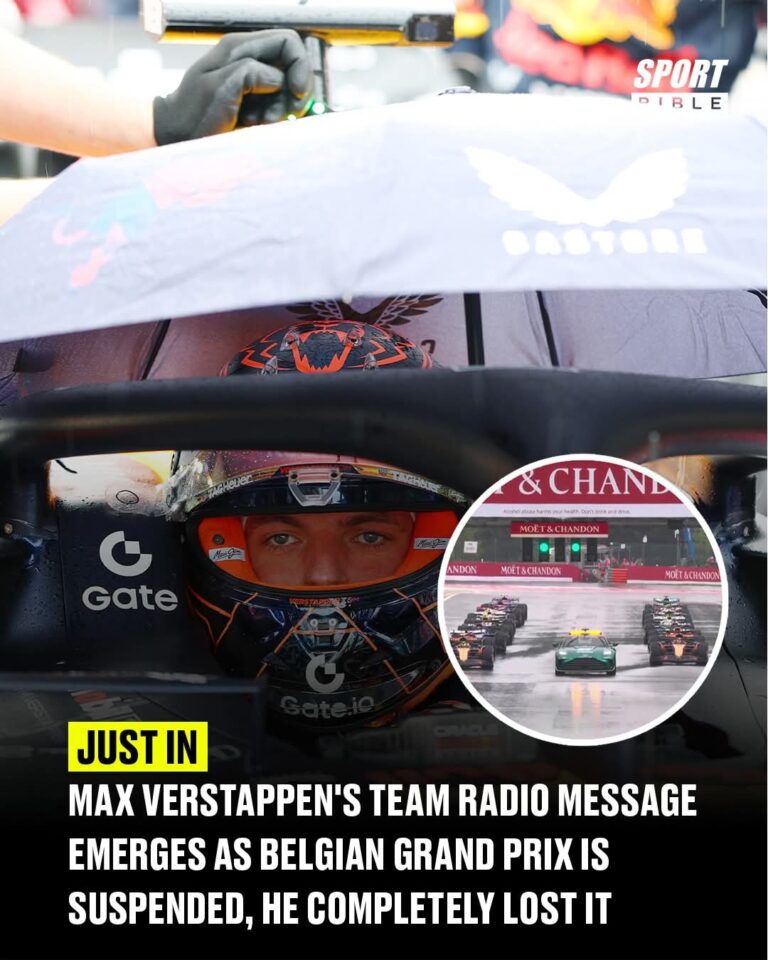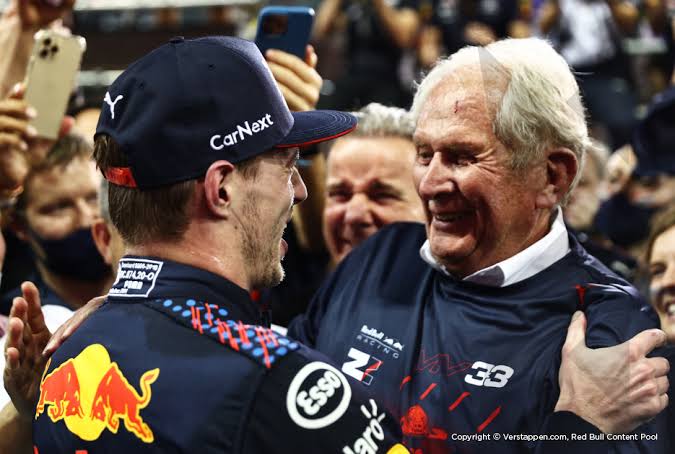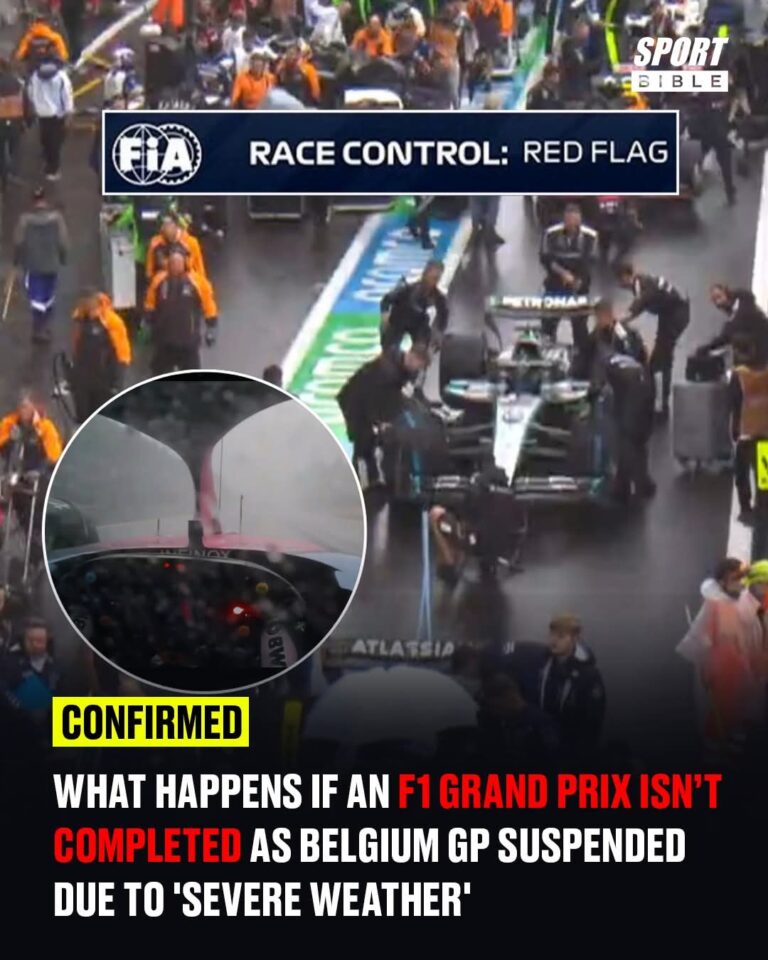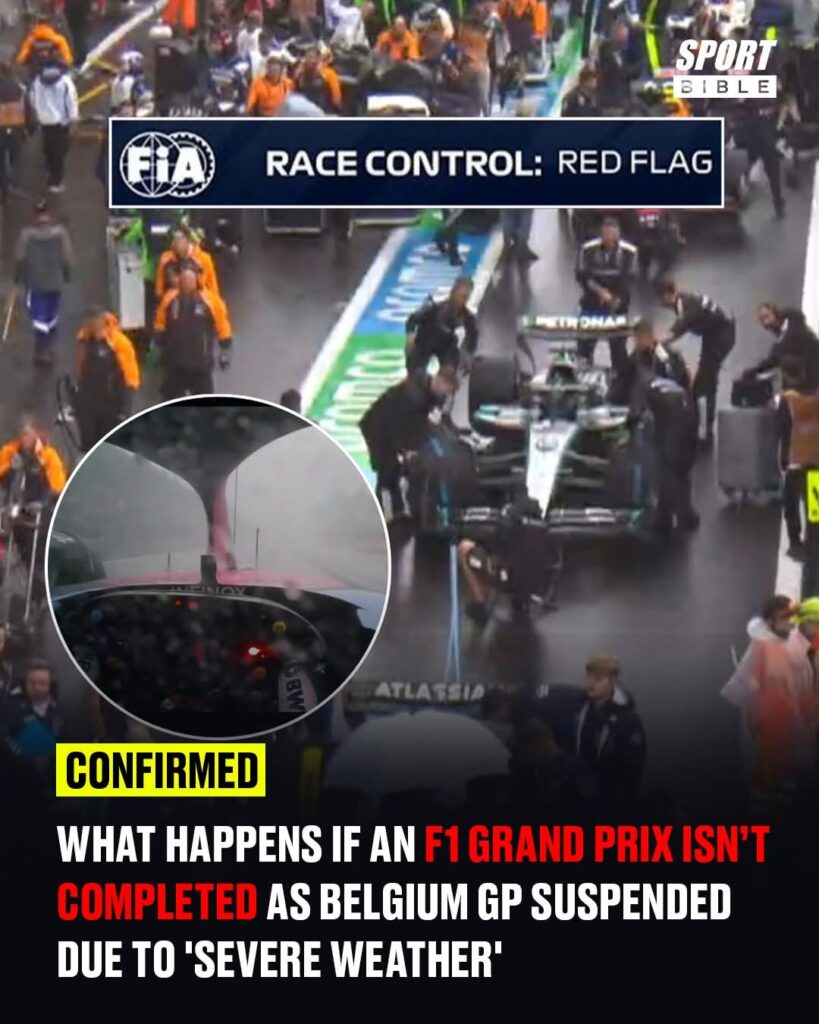
The Belgian Grand Prix descended into uncertainty as relentless rainfall triggered an immediate red flag mere moments after the formation lap, prompting widespread speculation about the ramifications of a potential cancellation. The weekend had begun on an electrifying note, with reigning champion Max Verstappen triumphing in the sprint race and McLaren’s Lando Norris claiming pole position for the main event.
Persistent downpours at Spa-Francorchamps rendered visibility perilous, compelling the FIA to prioritize driver safety and suspend proceedings. Should conditions fail to improve, the Grand Prix would be annulled entirely, resulting in no official classification and zero points awarded. This scenario remains a last resort under Formula One’s stringent regulatory framework.
If competitors manage to surpass two laps under green-flag conditions but fail to complete 75% of the scheduled distance, half points will be distributed based on the order at the stoppage. Conversely, achieving 75% race distance—calculated at 33 laps for Spa—guarantees the allocation of full points, with final standings determined by the last completed lap prior to any red flag.
Regulations stipulate that all racing must conclude within a three-hour window; thus, if conditions do not permit safe continuation by 17:00 BST, officials will enforce the prescribed points system according to race distance covered. The framework echoes precedent from prior weather-disrupted events, ensuring competitive equity despite adverse circumstances.
While several drivers expressed reluctant agreement with the FIA’s conservative approach, Verstappen castigated the decision during team radio exchanges. Advocating for immediate resumption before intensifying rainfall, he remarked: “Well, that’s just a bit silly… We should just run a few laps, like chillax. They’re way too cautious. Now the heavy rain is coming, and then it’s gonna be a few hours delay.” His criticism rekindled debates over risk tolerance in modern Formula One.
